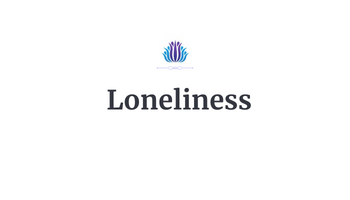Dear Fellow Health Nuts…
When I say the word “healthy,” what comes to mind for you?
When I give presentations in the community, the most common answers I get to that question include:
- Eat plenty of vegetables
- Exercise
- Drink water
- Avoid junk food
- Meditate
- Get enough sleep
- Manage your weight
Rarely, if ever, does anyone say “human connection.”
Weird, right?
You might not know this, but what research (on health, happiness, and longevity) continues to reveal is that human connection is absolutely pivotal to living a healthy, happy and lengthy life.
In a newsletter posted by Harvard Health Publishing in June, 2017, the author pointed to Dr. Waldinger’s work (he’s the director of Harvard’s Study of Adult Development). It has been following upwards of 700 men since 1938 (these men were mostly adolescents at the start of the study). Some of them, now in their 90’s, are still alive today.
Their blood samples have been taken over time. They have been interviewed, periodically, through the years. Their family members have been consulted, as well.
What the research yields, consistently, is the importance of social connection. That seems to be the primary universal ingredient running through the thread of longevity and satisfaction in each of these men’s lives.
The Problem of Loneliness:
Okay, that’s all well and good. But if someone does not have social connection built into the fabric of their everyday lives, is it really THAT bad? Or is social connection just something that is correlated with better health? (Maybe, for example, people who are healthy also tend to have more energy, and therefore are willing to go out more)?
No such luck.
Social connection is important. Loneliness, meanwhile, can be rather toxic.
People who are lonely tend to have higher levels of cortisol in their bloodstream (which increases our risk for inflammatory conditions such as Type II Diabetes, heart disease and dementia).
Some research suggests that loneliness can be as great a health risk as smoking 15 cigarettes per day. It’s even more risky than obesity (though obesity is given far more publicity).
In the UK, the British Red Cross has even begun partnering with the Co-Op and have set up a Loneliness Action Group to combat the issue.
Finally, loneliness, it seems, makes us far more susceptible to compulsive and addictive behaviors. Rachel Wurzman, in her TedTalk “How Isolation Fuels Opioid Addiction” uses neuroscience to explain just how loneliness affects the brain. (Hang in there with me as I make an attempt to summarize her findings.) Based on her research, Wurzman explains that the striatum is a part of the brain most commonly linked with addiction and compulsive behavior. The striatum is at the base of the forebrain and it enables decision making. It’s heavily influenced by social connection (and/or its lack). Based on what she describes, social isolation seems to make the striatum more sensitive (which, in turn, cues our brain to be on the lookout for rewards). It also makes us more prone to feel lonely. Loneliness, meanwhile, is extremely uncomfortable. Physically painful, even. That experience, combined with a now hyper-sensitive reward seeking striatum, triggers our brain to seek out external elements from our environment to soothe the discomfort. That can include drugs and alcohol…but it can also include spending too much time in front of a screen, or eating too much food.
It seems that loneliness is not just a sissy-la-la in-our-heads problem. It’s real. And it has real consequences.
There is a difference between social isolation and loneliness:
It can be tempting to create a simplistic solution to loneliness. Oh…are you lonely? You must be socially isolated! No problem. We’ll send over some people pronto.
But it’s worth noting, here, that loneliness and social isolation are not the same thing. One can feel at ease in solitude and can feel painful loneliness in the middle of a crowded room.
Isolation is physical removal from other people. Loneliness is a sense of being disconnected from people who may even be in physical proximity.
This is especially important for highly sensitive people and introverts to note. HSP’s often tell me that they feel lonely. They feel misunderstood. Yet they get frustrated when people tell them to “get out more” and “meet new people.” Doing so doesn’t always help. Sometimes, it even makes things worse. Now, not only might I feel lonely, now I also feel exhausted by the light and casual butterfly-style communication I was forced to play out with perfect strangers.
What can be said about isolation and loneliness, however, is that they are certainly correlated. People are far more likely to feel lonely when they are physically removed from others. Nevertheless, throwing random humans together in a random space and forcing idle conversation doesn’t make much of a difference. It is that the quality of connection that is far more important than the quantity of it. In other words – having 250 facebook friends does not seem to quench the thirst for connection. Nor does attending a random social event with people you do not feel any affinity toward.
That, of course, leads into my next question.
Are we, perhaps, getting lonelier? Is technology and culture fueling loneliness? Are our screens the problem? Or maybe our dating apps? Is Facebook to blame?
Technology and Loneliness
Luke Fernandez and Susan Matt are both of the mind that technology isn’t so much responsible for loneliness as it is responsible for making us more keenly aware of it.
In the past, people simply thought of loneliness as being a part of the human condition. No one liked it, certainly. But it didn’t occur to anyone that someone else might be getting away with NOT being lonely.
Glennon Doyle points to this in her book “Love Warrior” when she talks about “hot loneliness.” She used to think that if she was lonely that it necessarily meant there was something wrong with her. It’s what led to addiction. She was looking for easy buttons to assuage the hot loneliness. It wasn’t until she did some self inquiry that she realized that we ALL feel lonely. If one feels lonely at some point, it means said person is human.
What technology (social media and advertisements) do to fuel the problem is tell us (inaccurately) that if we are lonely, there is something seriously wrong. Either wrong with us, or wrong with our lives. Look! Sally Smith is getting married! And she is SOOOOO happy! (nevermind that she is losing sleep over the bajillions of wedding decisions she needs to make and is struggling to stay on good terms with her soon-to-be-in-laws). Oh! Are you feeling (insert whatever insecurity you might have here)? No problem! Just buy this product or eat this food or drink this booze and all will be put to rights again.
Clearly simply blaming technology for the problem isn’t enough. It might exacerbate it, but it didn’t cause it. It might be correlated…but it isn’t the answer.
Why This is Important for HSP:
In my experience, when I speak with fellow HSP’s, loneliness is a universal theme. And it’s a special kind of loneliness.
Does any of this sound like you?
- I want to feel like someone just gets me…but most of the time, I just feel like an alien.
- I want to feel connected, but by the time I’m done with work, I’m exhausted. I just want to go home. I know that will just leave me continuing to feel lonely…but it’s a catch-22.
- Most of the people I have access to often want something from me. And that’s okay, most of the time. But I don’t always have the energy for that. So sometimes it’s just easier to be alone.
- I know I should get out more and meet new people…but networking events exhaust me.
- I find it hard to meet new people that I would actually want to form a relationship with because…
- I am easily bored by superficial conversation
- I am easily irritated by behaviors others don’t even seem to notice
- I can quickly assess a person’s values and attitudes with which I disagree.
- Or the other side of the coin…I sometimes find it difficult to deepen relationships with people because:
- I am afraid of the energy it will require of me to sustain it
- I fear the possibility of hurting someone’s feelings at some point during our relationship
- I am afraid that someone might hurt me.
- I flat out just don’t like conflict
If this sounds even a little bit like you…the good news is that you aren’t alone. But what good does it do to know that if you feel alone in it?
In other words – what am I supposed to DO about it?
Tips to Reduce the Palpability of Loneliness:
- Remember that everyone feels lonely at some point. No matter what the images on social media try to fool you into believing, EVERYONE gets lonely. You might even sing the tune “everybody hurts…sometimes.” What I mean by this is simply that there is nothing wrong with feeling lonely. It’s a perfectly normal human emotion. Your capacity to feel it suggests that you are still alive.
- Get CURIOUS about your loneliness. Try to find loneliness inside of you. What does it feel like? What bodily sensations does it encourage? Often just by witnessing loneliness, it can shed light on the sense of emptiness you feel and, in many cases, make it dissipate.
- Gently push yourself to get out and meet new people in ways that are non-threatening and have the greatest likelihood to be at least moderately pleasant. For example – think about things you like to do and join a meetup for it. Organized meetings can be ideal for HSP. It is organized. It’s clear what everyone is there to do. It’s clear when the end of the event will be.
- Get enough sleep. No…really. Research shows that people who are sleep deprived are more likely to feel lonely. Beyond that, due to the fatigue that comes with sleep debt, many said individuals will self-isolate due to their exhaustion…which only further aggravates that sense of loneliness.
- Don’t assume that just because you spend long hours alone that it means you should feel lonely. This comes up a lot for HSP. They feel judged for their need for recharge time. Loneliness that stems from social isolation occurs only when we feel like we can’t change our circumstances. When we choose to spend time alone, it can actually feel nourishing.
- Befriend yourself. This is absolutely imperative. One of the greatest challenges HSP tend to have is low self-esteem. This is especially true for men with high processing sensitivity. But no matter who might be in the room with you or sleeping in the bed next to you, you are always alone in your unique experience. If you enjoy your own company, loneliness will find it much more difficult to take root within you.
Curious just how “lonely” you are? There is a quiz for that!
Below is a link to a quiz shared by Oprah. It assess the degree to which you self-identify as “lonely.”
I would love to hear from you. What are YOUR thoughts about loneliness? Is it something you feel often? Do you think we really are in a loneliness “epidemic?” When you do feel lonely – what helps assuage the sensation?

